Preparing for a job interview? Most people don't do it very well. The key difference between a mediocre interviewer and a top performer lies in their interview preparation.
The best candidates who consistently turn interviews into offers are the ones who methodically prepare. Their answers are concise, their company knowledge is on point, and they're armed with all the ammo they need to build a relationship with their interviewer.
While proper interview preparation takes time, it doesn't mean that it should take over your life. In this article, I'm going to teach you a proven, 4-step interview preparation system that has helped people in my community land jobs at Amazon, Google, Apple, Facebook, Microsoft, and more.
You're going to learn:
- A simple strategy that will help you succeed in 90% of your interviews without any additional prep
- A psychological principle that will help you quickly memorize and recall interview answers
- How to anticipate every question your interviewer will ask you ahead of time
- My interview preparation process for efficiently researching companies and interviewers on short notice
- And a whole lot more
By the end, you'll know exactly what you need to consistently turn your interviews into job offers.
Interview Preparation Step #1: Memorizing The 7 Core Interview Questions
One of the easiest ways to become a better interviewer is to prepare yourself for the obvious questions.
After going on 50+ interviews at dozens of different companies, I began to realize something — pretty much every employer asked a variation of the same questions. I knew that if I could memorize concise answers to a set of core questions, I could walk into pretty much any interview and succeed without much additional interview preparation.
It may sound like common sense, but you'd be surprised at how many people spread their brains thin by trying to cram in answers to every single question they might ever be asked. Instead, start by mastering and memorizing your answers to the 7 core questions you're likely to see in any interview:
- Why do you want to work for us?
- Tell me about a time you exhibited leadership
- Tell me about a time where you had to work as a team
- Tell me about a time you’ve had to work with a difficult person, or difficult people
- Tell me about a time you failed
- Tell me about a time you overcame an obstacle
- Tell me about a time when you had success
The easiest way to start is by writing down your answers to each question in a Google Doc. Get all of your thoughts down on paper and don't worry about length or wording just yet.
Once you have your answers down, begin rehearsing them whenever you have a free second – in the shower, during your commute, at the gym – and iterate as you go. Focus on one answer at a time.
Think about what words could be cut and what you could adjust or add to make your message clear and concise. After editing in your head, fire up the Google Doc and make the changes in there as well.
Your goal is to whittle down your answer into a short story that delivers your message and its value in as few words as possible.
The Anatomy Of A Great Answer
The best interviewers follow three guidelines when crafting their answers:
- Tell a story
- Include measurable metrics and results
- Anticipate and handle objections
Let's break each of these down and then I will consolidate them in a sample answer for you.
Tell A (Short) Story
Science has shown us that people tend to resonate more with facts that are told in the context of a story. It's the same reason that you're more likely to remember historical events told through a gripping movie than via a boring textbook.
Great stories start with a hook. For example, your answers could lead with:
“Our client was threatening to cancel the deal…”
“Less than 24 hours before the deadline, the system shut down…”
“We realize we only had 3 months worth of funding left…”
Your opening should trigger a sense of urgency in the listener and make them both anxious and excited to hear the next sentence. As you continue, try to be concise and clear. The experts at Hired recommend keeping answers to around 90 seconds total.
Measurable Metrics
You want to make sure to include specific metrics and results in your answers. By doing this, you're illustrating the exact value the employer can expect to receive if they choose to hire you. It's also a huge advantage because most people simply don't do it.
Instead of, “I planned and executed our social media campaigns to bring in new customers across channels,” you want to say something like, “I executed a specific Instagram marketing strategy focused on targeted user followings, niche hashtags, and follow-for-follow. The campaign drove 10,000 new followers in 3 months and made up 20% of our total sales (up from 4% before the campaign).”
Anticipate & Handle Objections
If you believe your interviewer has a reason to doubt your ability (maybe you come from a non-traditional background, or don't have as many years of experience as other candidates), you want to address that in your answer.
Keeping with our social media theme above, that could look something like this:
“While I don't have a formal education or traditional job experience in marketing, I spent the past year teaching myself the ins and outs of social media management and the strategy we used above had worked well for several of my freelance clients in the past.
That answer reveals that you aren't afraid to roll up your sleeves and learn something new and you actually went out and booked freelance clients. If an employer had doubts about your experience, that should put them to bed.
Example of a Great Interview Answer
Let's say that your interviewer asked you about a time you overcame an obstacle. Your answer might look something like this (this is a real answer I gave when interviewing at Google & Microsoft):
“The client was threatening to cancel the deal…
We had signed them on for a $250,000, six month pilot. A month before we were supposed to present on our findings, we found out that they were upgrading the websites for their entire brand portfolio and their current platform didn’t allow us to capture data that was crucial to our value prop (90% of what we sold them).
The client said that unless we could deliver useful data in the next month, they would take their business elsewhere. Since the data wasn’t readily available we needed an alternative.
I set up an in person meeting with their agency and gained access to their site analytics. Then I spent the next two weeks digging into their sites' analytics data and manually matched it with the data on our end. Through this we were able to get some very granular data on their audience.
When we presented our findings four weeks later, I explained how we connected with the agency to improve tracking, and what would now be possible moving forward. That meeting resulted in a contract extension worth 316% more than their original deal.”
Hacking Your Brain To Memorize & Store Your Answers
The best technique I've found for quickly storing and recalling answers is Spaced Repetition. It's a research-backed memorization technique that leverages the Forgetting Curve (below) to help you maximize retention with minimal input.
The technique is center around a 2x2x2 memorization pattern. You start with an initial memorization period. Then you repeat your answers 24 hours later, 48 hours later, 7-10 days, etc:
Here is the practice schedule I recommend for memorizing your answers:
Week 1: Take a full 7 days to write, refine, and initially memorize your answers. It's important to take the full week, otherwise there will be too much refinement during the rest of the process making it harder to memorize.
48 Hours later: After the first 7 days, take a 24 hour break, then rehearse each of your answers three times the following day.
5 days later: Rehearse each of your answers three times.
10 days later: Rehearse each of your answers three times.
Recurring practice: Moving forward, rehearse your answers once every two – three weeks as needed. At this point they should be fairly solidified in your head.
When it comes to getting started, the best time is now. It takes time to prepare and memorize your answers and you never know when a job interview will pop up. If you're job hunting, you know there will be interviews down the road so don't put this off. In my opinion, it's the largest return for the least effort in this entire article.
Interview Preparation Step #2: Anticipating Additional Questions
If you've memorized your answers to the core questions above, you're in a great place preparation-wise. Next, we want to find any other company-or-job-specific questions that might be thrown at us during the interview.
These typically include the questions you hear about like how many golf balls fit into a 747? or you're behind on your quota with 6 weeks left in the quarter, what do you do?
You don't necessarily need to craft full answers for these, but having them in the back of your head as you go into the interview will help you answer well instead of freezing up.
We'll start by heading over to Glassdoor and navigating to the “Companies & Review” tab and type in your company name. In this case, we'll use Google:
Your search will take you to the company profile page where you'll have the option to select the “Interviews” tab:
On the next screen you can type in the title of the role(s) you're applying for and filter by geo. This will pull up the interview experiences people have submitted for those roles and geos. This is really helpful because you can get a sense of interviews at a specific office (the experience definitely varies from office to office at most companies):
Next, you'll want to scan through the reviews left by other candidates. All of the information here is helpful for getting a sense of the interview process, but you specifically want to pay attention to the “Interview Questions” section. This is where people will post questions they got during their interview. You'll want to keep track of these in a Google doc or something similar:
After scanning through a few dozen interviews, you'll have a good sense of the process as well as an idea of other questions you may be asked on the big day. If you really want to go the extra mile and be 150% prepared, you can check out this list of ~60 interview questions along with strategies on how to best answer them.
Interview Preparation Step #3: Researching The Company
The last step in our interview preparation process is researching the company. When you walk into the room you want to know things like:
- How profitability and earnings are looking
- What challenges the company is facing and how they plan to deal with them
- What initiatives they have coming up
- What their company culture is like
For public companies, there are a few highly efficient ways of doing this. Here are a few of them:
Read / Listen To Earnings Calls
Public companies are required to share financial information, challenges, initiatives, etc. with their shareholders. They typically do this on a quarterly call and the recordings and transcripts for those calls are available to the public.
All you need to do is search for “[Company Name] Earnings Call” on Google and it should come right up. For example, here's a screenshot of the webcast for Tesla's annual shareholder meeting:
Subscribe To Alerts On Seeking Alpha
Seeking Alpha is another great resource for rapidly absorbing information about a company from different perspectives.
All you need to do is enter a company's stock ticker and you'll have access to dozens of free articles spanning the entire spectrum of opinions about the company and its future. If you hit the “Get Alerts” button in the upper right, you'll get a daily email digest of the most popular and relevant articles:
Private companies require a little more research since most of their information isn't available to the public. Here are a few ways to get info on them (pro tip – you can also use these for researching the public companies as well):
Comb Through Their Social Media Community
Twitter and Instagram are the two best platforms for this. Start with their corporate account to get an idea of the company vibe as well as what they're excited about:
- How are they interacting with other users? Is it serious or playful?
- What are they tweeting about? Is there a release or an event coming up that you should know about?
Next, find current employees on these platforms and see what they're talking about. Are they shooting witty jokes back and forth, or are they more on the polished, professional side? Are they talking about the same release/event, or is there something else that's causing a buzz.
You can use the events as conversation starters and the tone of the posts can help you get a sense for what style of conversation to adapt.
Watch/Listen To Interviews With Senior Employees
Casper is a private startup looking to disrupt the highly-outdated mattress and sleep industry. About two minutes of YouTube searching brought me to a recent interview with the co-founder and CEO of Casper, Philip Krim.
In the interview, Krim discusses the challenges of disrupting an industry of sleeping giants as well as his plans for the company's future. There is a lot of great info in here that can be used to craft solid interview questions or even a Value Validation Project:
Reach Out To Former Employees
This strategy works best if you find employees who went on to a better role/company as they're less likely to be negatively biased.
LinkedIn's filters allow you to search for Past Companies so you can leverage that to find alumni of the company you're looking for. When you reach out and set up the conversation, your goal is to understand the status of the when that person left, as well as the challenges the company was facing. They also may have a few ideas for solving them that you can leverage in your interview.
Survey Their Customers/Prospects
My final research tip is one of my favorites when it comes to differentiating yourself from the competition.
Regardless of who your target company is, they're going to have customers / prospects that they're trying to sell into for one reason or another. Those customers can be a goldmine of info because if there's one cohort of people that isn't afraid to speak their mind — it's them.
If you have enough time, you can work to survey those customers and try to uncover ammo for your interview by asking questions like:
- What do you love about [Company X]?
- What would you improve about [Company X]?
- What's something [Company X] should do that they're not already doing?
- What sets [Company X] apart from the competition in your mind?
- Etc.
Whether you get people on the phone, in person, or you get them to fill out a survey (here's a great survey/form builder), you can use this data to identify opportunities and create a story through your interview answers or your Value Validation Project.
Interview Preparation Step #4: Research Your Interviewers
Some companies will disclose the names of the people you're interviewing with before the big day. If they don't, I always recommend that you send a note to your recruiter and ask them for that information.
If you know who will be sitting across the table, that puts you at a huge advantage because you can research the heck out of that person before your conversation.
The best interviewers are the ones who are able to quickly build a rapport with the person sitting across the table. The most effective way to do this is by finding a topic the interviewer enjoys and encouraging them to talk about it.
Research has shown that talking about yourself and activities that you enjoy activate the same pleasure centers in the brain that light up when you have sex, eat an amazing meal, or are high on cocaine (seriously). By doing your research beforehand, you can navigate the conversation towards a topic that triggers the same effect.
For example, I'm doing research on my interviewer Tom. I notice that he shares monthly reviews of books he's read on a personal blog. Three months ago, he gave a hugely positive review for Michael Lewis's The Undoing Project where he mentioned that his favorite aspect was window it gave into Israeli culture over the last 60 years. Before we start the interview, I may structure the small talk like this:
Austin: “How has your week been going? Busy?”
Interviewer: “Always busy, this time of year is usually crazy but better busy than bored. How about you?”
Austin: “Great actually, I traveled a bunch which gave me some time to catch up on reading. I finally had the chance to finish Michael Lewis's new book, have you read it?”
Interviewer: “You mean The Undoing Project? Yeah! I read it a few months ago and really enjoyed it.”
Austin: “Me too, I'm fascinated by psychology so it was cool to see how those two shaped the field, but I also really enjoyed the fact that Lewis gave you an idea of what life was like in Israel. I learned a ton about their values and culture. I thought it was really interesting that both men would drop everything when war broke out, but then they surveyed the population and found that most Israel's heeded the call of duty for family and friends, not necessarily religion or country. Anyways, I'm blabbing on here but it was great. Do you read a lot?”
Interviewer: As much as I can, I felt the same way about the book. Haven't found one by Lewis that I didn't like.
Austin: Same here, and I'm in the market for a new read so if you have any recommendations, I'm all ears!”
Now my interview has taken on a much more casual tone. I established the point of commonality with my interviewer, his guard is down a bit, and it's going to be much easier for me to build the relationship over the course of the interview.
How To Research Your Interviewer
The best places are the ones you'd usually use to look up someone. Start by Googling their name, what comes up? Are there any articles they've written? Does a personal website pop up?
Next, hit their social media profiles. What kind of content do they share? Scan through their LinkedIn posts and activity. Scroll through their Facebook timeline. See what they're saying on Twitter.
It doesn't take long to get an idea of who they are, what they like, and where you might be able to capitalize on a common interest.
Interview Preparation Bonus: Create A Value-Add Project To Seal The Deal
If you truly want to knock the socks off of your potential employer, I always recommend putting together a Value Validation Project as part of your interview preparation.
This tactic is a core tenant of my overarching job search philosophy. It starts with getting information around a company or hiring manager's challenges, upcoming initiatives, and goals. Next, you do some research based on the info they gave you and build out a deliverable that adds value against the challenge, initiative, or goal.
The best way to leverage this is to save it for the end of your interview, right when the interviewer begins to close things out:
Interviewer: “Great, it was wonderful to meet you, is there anything else I can answer before we go?”
You: “Actually, there is one more thing. I spoke to a few people who work at [Company] and did a bit of research on my own. I know that the company is facing some challenges around customer experience. I actually headed up a project at my previous company that focused on tearing down our CX funnel and rebuilding it from the ground up. I went ahead and put together a few ideas that worked for us, as well as the methodology behind them. No need to look through them now, but I'd be happy to chat in more detail if you'd like. Thanks so much for taking the time to meet with me!
This is your interview mic drop.
If the interview went well, this is the nail in the coffin that will seal the deal. If the interview was a little bumpy, this can save you.
By introducing it at the very end of the interview, you also open the door for a follow up. If you don't hear from them, you can send them an email a week later and say, “Hey, did you get a chance to look at those ideas I left around Customer Experience? I'd love to get your feedback.”
Here are a few examples of value add projects other people have used to get hired.
Now get out there and start preparing!
Have questions about your next interview? Wondering why you're not converting interviews into job offers?
I wrote this interview preparation guide to give you some insight into a proven process that's worked for me!
I know everyone's situation is different — your background, your goals, the role you're targeting, the interview process, etc. I want to make sure you get the help you need!
If you have a specific question or if you have any feedback on the post, scroll down and leave a comment.
You can also reach out to me and my team for additional help on interview preparation!


















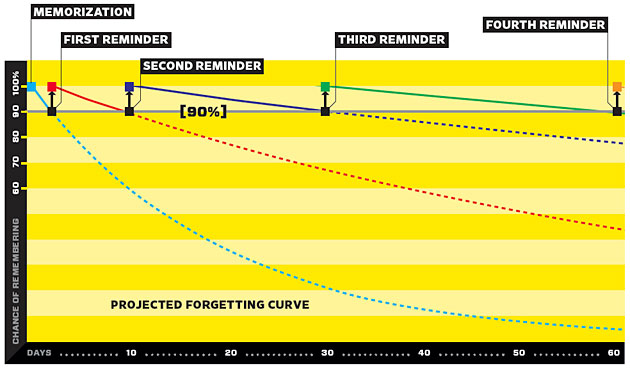
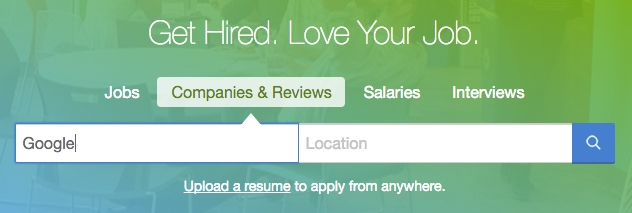
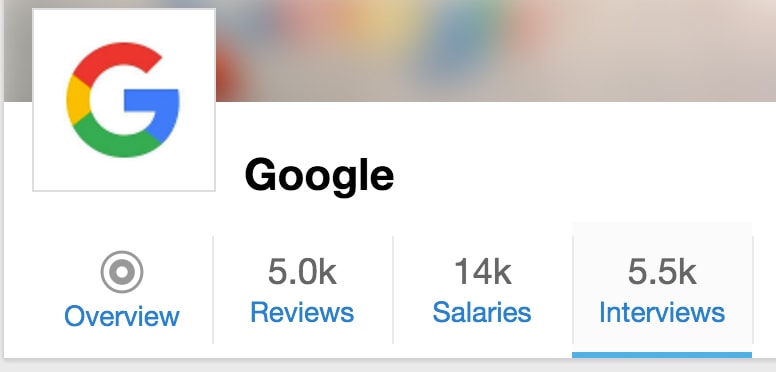
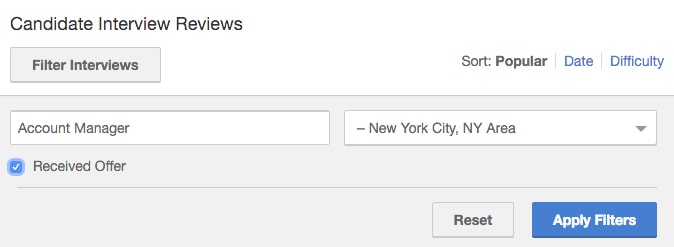
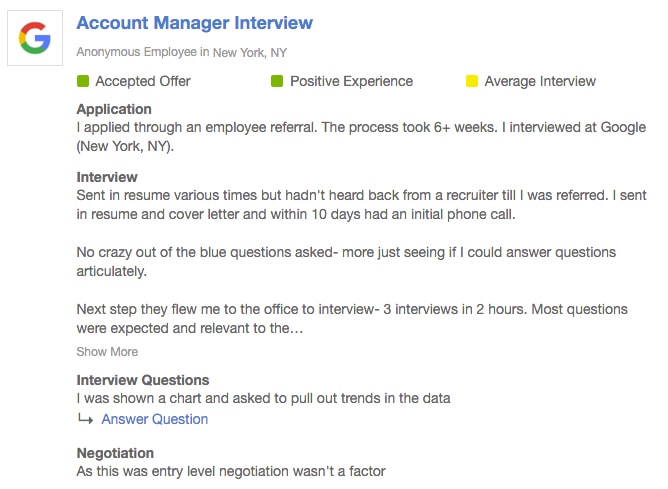

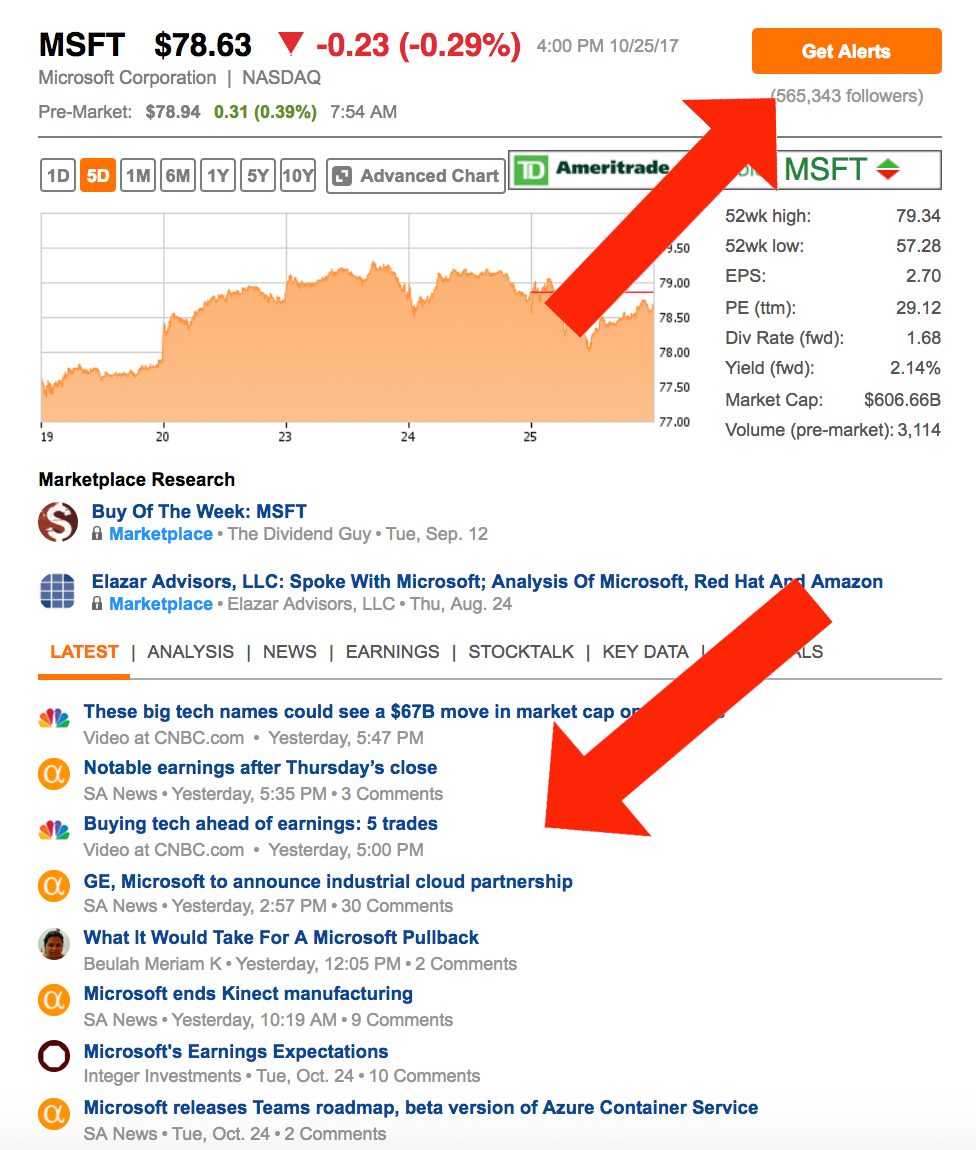
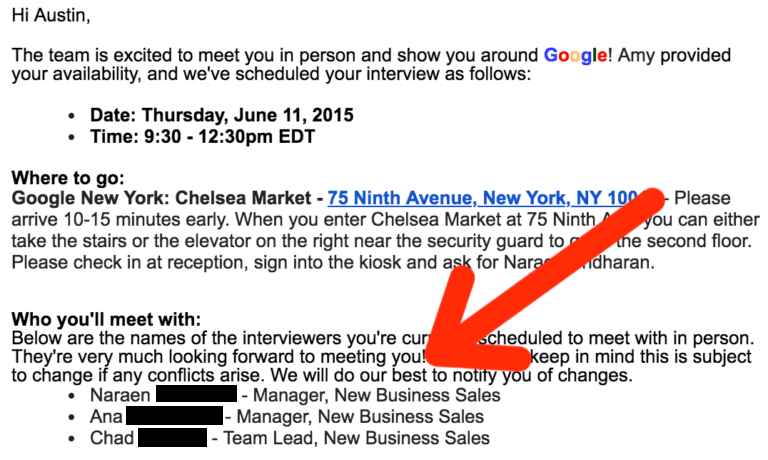


















As part of the Talent Advisory community, I interact with a lot of candidates and each experience is unique. However, there is a constant: being …loved reading this blog
I usually never comment on blogs or articles. However, I am making an exception since this was such a great article! I love structure/framework and this article really gives a practical way to maximize the time it takes to prepare for an interview. Thanks so much for sharing. I have bookmarked the page and will be using it to prepare for the interviews I k ow I will have in the future.
You made my day! I’m so happy to hear the steps and strategies brought a different approach to interview prep. In my experience, great prep is what makes or breaks people’s chances of landing that offer!
Hey, can you write that post you mentioned about? I.e finding the company’s pain points?
Hey Devian, did you check out the Company Research section of this post? It talks about ways you can research companies to find their pain points.
Hey Austin,
Been following your content now for about 4 years and you have truly been one of the best in leading job seeekers in the right direction.
Two quick question:
1. Regarding the 7 core interview questions, should they be generalize for any screening interview or tailored to each job we apply to?
2. Regarding the anatomy of a great answer, should this framework be applied to each interview question that is not one of the 7 core interview questions as well?
Thanks again for this wonderful article, as I have already shared is with a friend of mine who is also in the job hunt!
God bless,
Aviel
Firstly, thank you so much for your kind words and continued support over the past 4 years. It’s always heartening to hear from readers like you who find value in the content.
To answer your questions:
The 7 Core Interview Questions: While these questions are designed to be broadly applicable, the most effective responses will be those that are tailored to the specific job you’re applying for. Every role and company has its unique nuances, and by showing that you’ve taken the time to align your answers with the company’s culture and the role’s requirements, you’ll come across as more thoughtful and prepared.
The Anatomy of a Great Answer: Absolutely! This framework is a versatile one, and while it’s particularly relevant for the 7 core questions, you can certainly apply it to other interview questions as well. It ensures that your answers are structured, clear, and impactful.
I’m truly delighted to hear that you’ve shared the article with a friend. Best of luck to both of you in your job hunting journey. Remember, every interview is not just about them assessing you, but also about you understanding if the company aligns with your values and career goals.